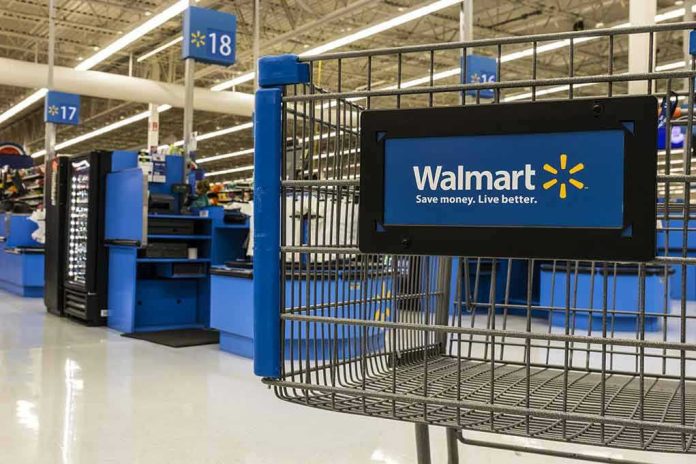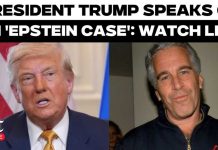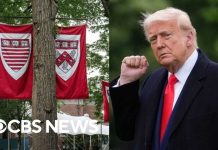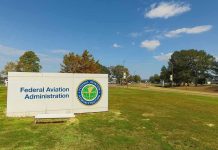
Walmart’s abrupt reversal on sponsoring H-1B visas wasn’t just a strategic retreat—it signaled a seismic shift in how American giants weigh political winds over global talent pipelines, leaving the future of skilled immigration dangling in the balance.
Story Snapshot
- Walmart and other major U.S. companies dramatically scaled back H-1B sponsorships after Trump administration reforms.
- Policy changes created uncertainty and risk, shaking the decades-long business reliance on skilled foreign labor.
- The ripple effects reach far beyond corporate boardrooms, raising questions about American competitiveness and workforce strategy.
- This retreat exposes a persistent tension between national priorities and global business realities.
Major Companies Retreat from H-1B Sponsorship: Why Now?
Walmart’s decision to scale back H-1B visa sponsorships came in the shadow of regulatory overhauls that put corporate America on notice. The Trump administration’s reforms redefined eligibility, tightened scrutiny, and injected uncertainty into a system that once allowed companies to tap a global reservoir of skill. For decades, giants like Walmart relied on the predictable flow of talent from abroad, filling gaps in technology, engineering, and critical business functions. When the rules changed, so did the calculus: the risk of denials, bureaucratic snarls, and public scrutiny made the H-1B route less appealing, even for the world’s largest retailer.
This retreat wasn’t isolated. Other major firms—across tech, finance, and retail—quickly followed suit. In boardrooms, HR leaders and legal teams pored over new guidelines, bracing for audits and legal battles. The once-straightforward process became a maze, with each step fraught with potential missteps and costly delays. The message from Washington was clear: favor American workers, scrutinize foreign hires, and expect consequences for noncompliance. Companies, seeking to avoid headlines and headaches, quietly scaled down their foreign hiring ambitions.
Shifting Winds: The Political Climate and Business Realities
Political rhetoric around “America First” found a new battleground in the H-1B debate. Lawmakers and activists argued that the program had lost sight of its original intent—to fill genuine skill shortages—not to provide a cheaper alternative to domestic workers. The Trump administration’s reforms responded to these concerns, introducing stricter definitions of specialty occupations and increasing documentation requirements. Critics claimed abuse by outsourcing firms had tainted the program, while supporters warned that blanket restrictions would stifle innovation.
Walmart’s withdrawal illustrates the crossroads for U.S. business strategy. On one hand, companies face mounting pressure to prioritize homegrown talent. On the other, their global competitiveness depends on accessing the best minds, wherever they originate. The tension between national priorities and market realities is nothing new, but the H-1B issue puts it under a harsh spotlight. By stepping back, Walmart and its peers sent a signal: uncertainty and risk have real costs, and companies will adjust to protect their interests—even if it means turning away world-class talent.
🚨 BREAKING: In an incredible move, Walmart just PAUSED job offers to people who would need H-1B Visas.
This is because of President Trump's new $100 THOUSAND visa fee.
GOOD! This signifies the H-1Bs were NOT absolutely necessary for Walmart and they can hire Americans. 🇺🇸… pic.twitter.com/K885va8GFC
— Eric Daugherty (@EricLDaugh) October 21, 2025
Who Pays the Price? Ripple Effects on Workforce and Innovation
Scaling back H-1B sponsorship doesn’t just affect the corporate titans or the would-be visa holders; it reverberates through the broader economy. Tech hubs and research centers have long relied on skilled immigrants to drive innovation. When companies retreat, projects slow, teams shrink, and the pipeline of next-generation leaders narrows. Some argue that this will force American students into STEM fields, but demographic trends and educational realities suggest the gap won’t close overnight. The risk is a slow erosion of the country’s competitive edge, as the world’s brightest minds look elsewhere for opportunity.
Supporters of the reforms insist that American workers stand to gain as companies are ‘nudged’ to invest in domestic training and hiring. Yet real-world outcomes remain mixed. Companies facing urgent needs may move jobs offshore or automate, rather than wait for the labor market to catch up. Meanwhile, skilled immigrants caught in the crossfire face limbo—uncertain of their prospects, unsure where to invest their careers and lives.
The Road Ahead: Can the H-1B System Be Fixed?
The H-1B story isn’t finished. As political administrations change, so too will policies and enforcement priorities. Business leaders, policymakers, and workers are locked in a high-stakes debate about the future of American work. Will reforms spark a renaissance in homegrown talent, or will they drive innovation abroad? Can the system be recalibrated to serve both national and business interests? Walmart’s retreat offers a cautionary tale: the cost of uncertainty is high, and the world is watching to see which direction America will choose.













